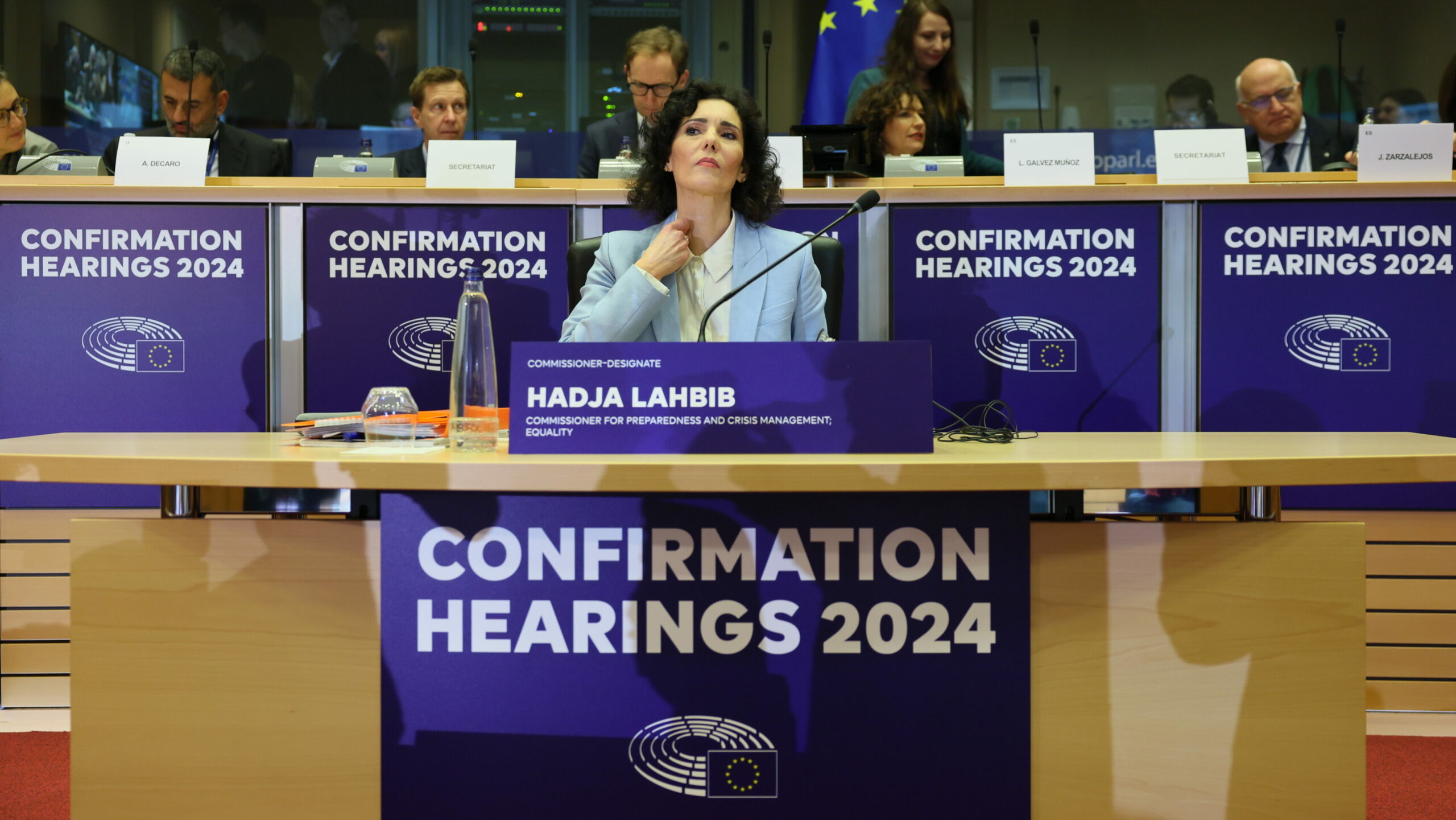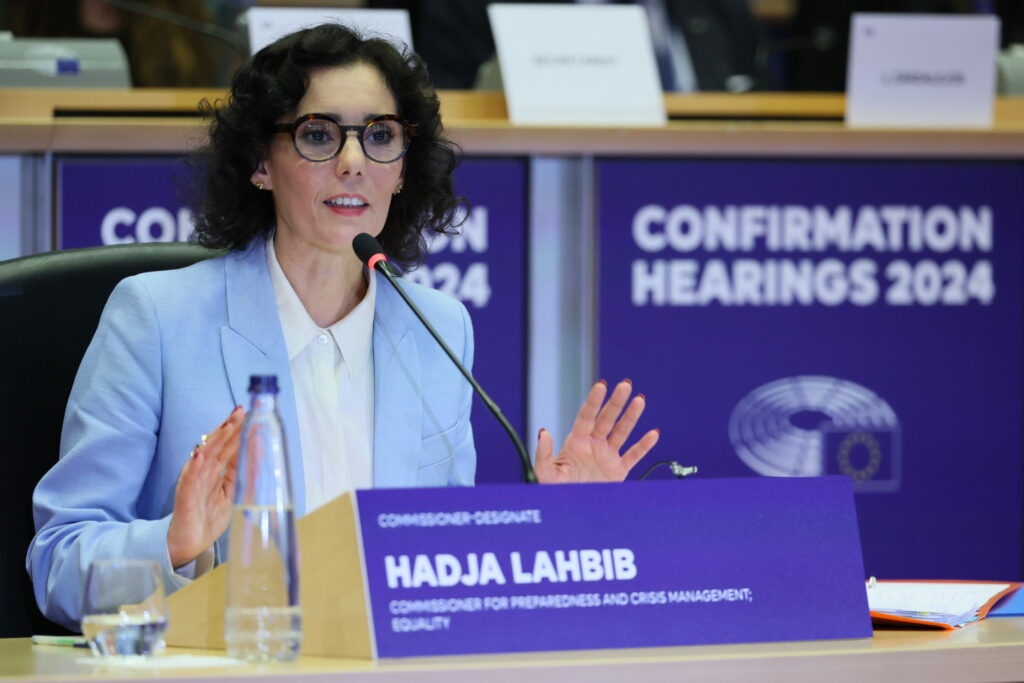Hadja Lahbib's nomination as European Commissioner for Preparedness, Crisis Management and Equality has been approved by Members of the European Parliament.
On Wednesday morning, MEPs grilled the outgoing Belgian foreign minister on her feminist policies, pandemic preparation, visas for Iranian delegates and visits to the Russian-occupied Crimea.
Lahbib's appointment was confirmed following a three-hour hearing where she faced questions from MEPs. The evaluation was delayed several times on Wednesday afternoon but the majority of MEPS said she performed well.
"She answered the most critical questions quickly and clearly," said Open VLD MEP Hilde Vautmans. "She did not avoid the discussion. That is how it should be and it worked convincingly."
MEPs asked Lahbib questions about why she is suitable for the role and how she planned to fulfil her responsibilities.
"I will 100% be Commissioner for Equality, and I will be 100% Commissioner for Preparedness and Crisis Management," said Lahbib, who is a member of the liberal French-speaking party Mouvement Réformateur (MR). "Throughout my entire professional life I have witnessed the impact of disasters on people around the world."
The 'crisis management' role involves overseeing the bloc's response to unforeseen events and strengthening international cooperation in all areas, especially in distributing humanitarian aid. 'Equality' refers to protecting the rights of groups across the board such as women, the LGBTIQ community, people of colour, ethnic minorities and people with disabilities.
Lahbib spoke about her intention to fight against anti-Semitism and Islamophobia in Europe. "Muslims and Jews are both victims of hatred because of the conflict in the Middle East," she said. "Politicians must not feed polarisation in European society today."
The hearing took place as the final results from the US elections rolled in. The ongoing floods in Spain also framed the debate given that Lahbib will be expected to spearhead the European response to disasters of this type for the next five years.

Credit: Belga / Benoit Doppagne
Past controversies
As expected, MEPs pushed Lahbib to explain past controversies, particularly her decision to grant visas to Iranian MPs and her visit to Russian-occupied Crimea.
She travelled to Crimea as a journalist on a Russian visa in 2021, something that critics say reveals a large gap in her support for Ukraine. The Belgian Commissioner-designate defended herself by pointing to her steadfast support for the invaded country as Foreign Minister, most notably throughout Belgium's EU Presidency earlier this year.
In 2022, Lahbib granted visas to Iranian delegates for a mayoral summit in Brussels. MEPs criticised this incident for supporting an oppressive regime with a long record of human rights breaches.
Questions about the Iranian visa scandal came principally from N-VA MEP Assita Kanko. Lahbib responded that visas granted to Iranian and Russian delegates for a mayoral conference in Brussels had been issued by the Brussels government "against the advice of my ministry."
She added that she had already won a vote of confidence in the Federal Parliament regarding the issue in June 2023. When questioned repeatedly by other MEPs, Lahbib said she had already addressed the issue.
'Glaring disappointment'
Upon Lahbib's nomination in September, women's rights groups expressed their "glaring disappointment" with the equality portfolio's combination with another (it was treated on its own during the last mandate).
"How can we expect real, sustained progress on equality when it’s seen as just another line on a long list of priorities for one Commissioner already overloaded with other pressing issues?" the European Women's Lobby stated.
Several MEPs touched on this during Wednesday's hearing. "Removing the Commissioner for Equality post is a step backwards," said Polish MEP Joanna Scheuring-Wielgus (S&D).
"I don't see my post as a step backwards. I see it as a new era that will be about mainstreaming and implementation," Lahbib responded. "Inequalities are present everywhere and require a cross-sector response."
Several far-right MEPs questioned Lahbib about allowing access to abortion but the Commissioner-designate said that this was a domestic issue to be handled by individual Member States.
Lahbib received several rounds of applause for her strong stand against conversion therapy, a practise that views homosexuality as an illness to be treated. She hopes to ban conversion therapy during her mandate.

